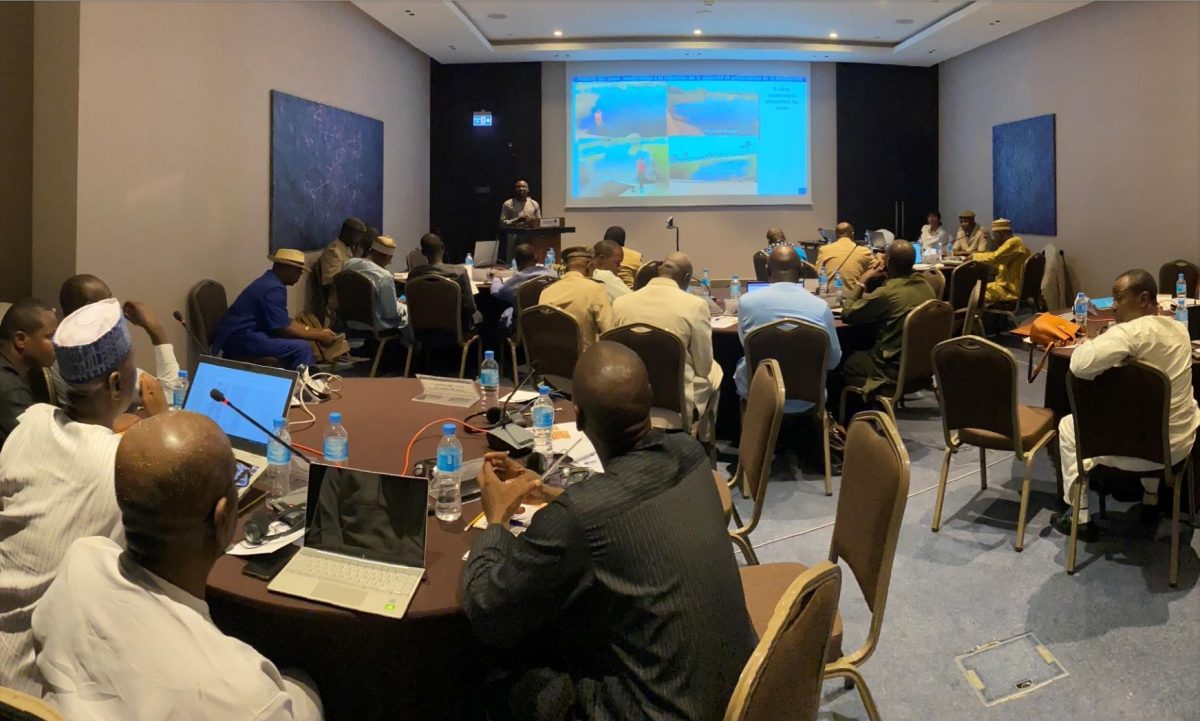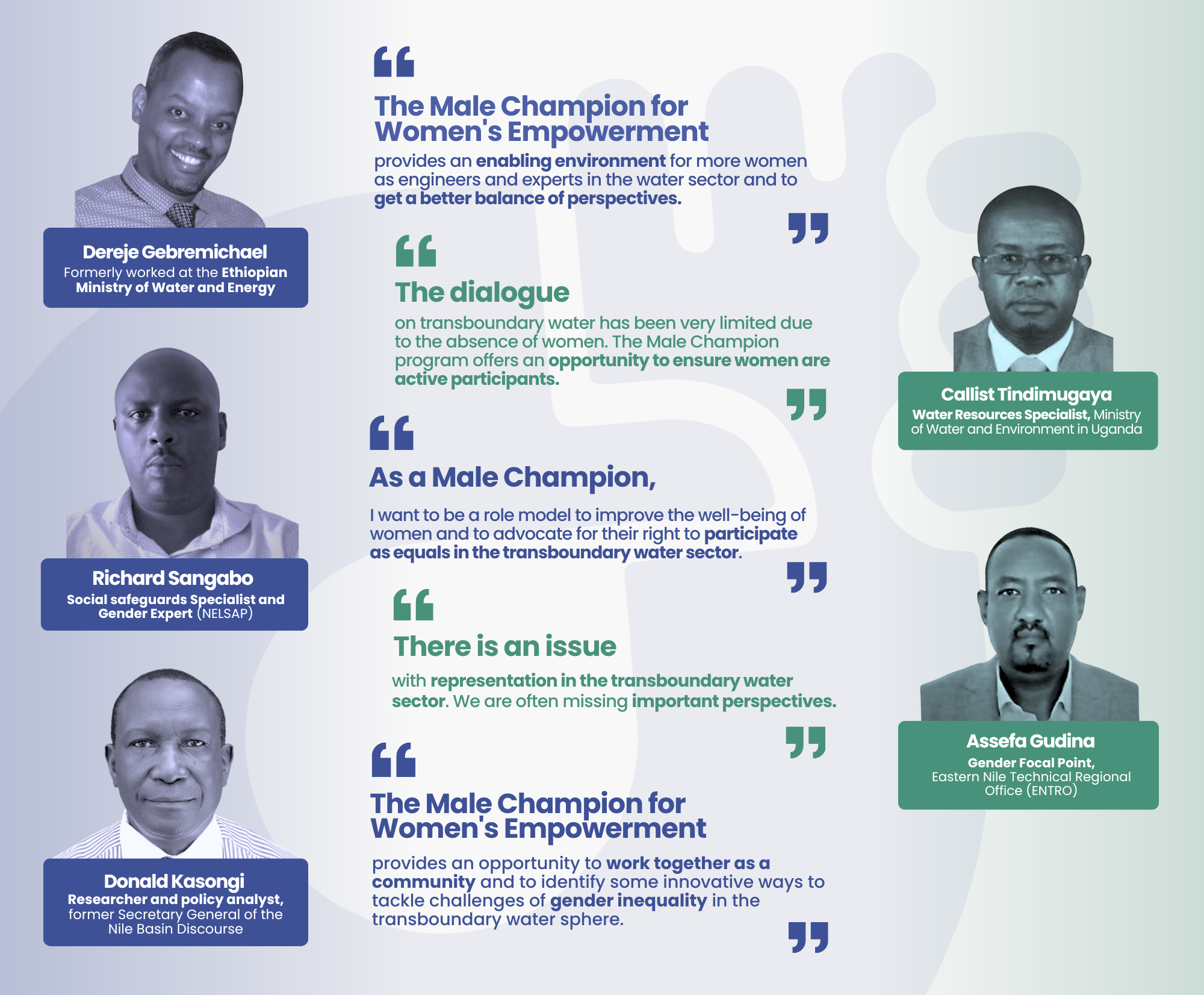Male Champions for Women’s Empowerment: Who has the power to make decisions?
Posted in : Blog on 14 November 2023

“Who has the power to make decisions?”
Everyone in attendance knew the answer —men.
“Women are seen as being in the rear seat,” said Donald Kasongi, a researcher and policy analyst from Tanzania who has worked for years to mainstream gender in transboundary water resources management, including for eight years as the Secretary General of the CIWA- supported Nile Basin Discourse.
Kasongi was participating in a virtual Male Champions for Women’s Empowerment workshop in June 2023, which was organized by CIWA as part of its work to bring a transformative gender lens to water resources management. The participants were chosen for their commitment to, and experience with, promoting gender equality.
CIWA has designed a pilot program to foster a cadre of men to spur changes in social norms and values on gender in transboundary water management and development, a sector that is dominated by men and strongly influenced by patriarchal norms and values.
CIWA believes that engaging men is key to transformative change and that working directly with pioneering men can help overcome male resistance to women having equal roles.
“The issue is representation” of women in the water sector, says Assefa Gudina, ENTRO’s gender focal point.
Dereje Gebremichael agrees. “The water sector is male dominated. It starts from the attitude of (male) leadership in RBOs,” says Gebremichael, a senior grants acquisition and planning officer for the Ethiopian Orthodox Church Development and Inter-church Aid Commission who formerly worked for Ethiopia’s Ministry of Water and Energy.
In the context of patriarchal cultural and social norms, women are stereotyped as being only water users rather than also as people who should have autonomy to make decisions about water use and management.
CIWA’s Male Champions for Women’s Empowerment initiative has the following goals:
- Increase awareness about the critical role that men can play in championing gender equality in the transboundary water context.
- Identify actions and initiatives that Male Champions can take to advance gender equality in transboundary water institutions.
- Facilitate opportunities for Male Champions to take individual and collective action to promote opportunities for women to play a greater role in decision making in transboundary water institutions.
- Improve representation of women in decision making.
Along with the issue of representation, Gudina says, is the need for more women to enter education programs in water resources management. He also says that there should be a stronger professional transboundary water network for women to advance their careers.
The men shared their reasons for joining the Male Champions for Women’s Empowerment.

Quotes from the East African members of the first Male Champions for Women’s Empowerment workshop held in June 2023.
Gebremichael candidly acknowledges that the promotion of gender equality has some benefits for men.
“I want to engage in the Male Champions for Women’s Empowerment to empower women in the work environment. They will help me share the work and projects.”
And, he says, gender equality strengthens communities. “The community always gives men all the responsibilities in life,” he says. “If I am a male champion working for gender justice, it makes the community a more powerful one. So, let’s empower men to work toward gender equality.”
Daniel Asrat, a monitoring and evaluation consultant in the Ethiopian Ministry of Water and Energy, says, “As a Male Champion, I represent my three daughters. I represent my wife. I represent my sisters, and I represent my female neighbors.”
The participants in the workshop agreed on next steps, including holding monthly meetings, developing a plan of action for the initiative, launching a social media platform, and working to expand the network.


